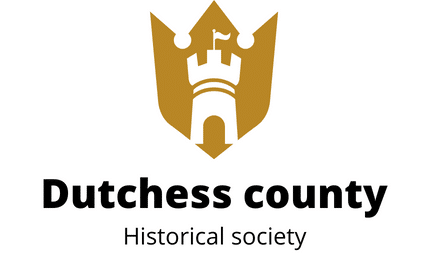What Are the Best Cognitive Training Tools for Improving Tactical Decision-Making in Ice Hockey?

In the world of ice hockey, the role of cognitive skills in enhancing player performance cannot be underemphasized. The ability to read the game, make lightning-fast decisions, and anticipate opponents’ moves is paramount. A key component of these skills is tactical decision-making, a cognitive function that involves swiftly processing and interpreting data, before making strategic decisions. Increasingly, ice hockey coaches and scholars are using cognitive training tools to amplify this aspect of players’ performance. But what are the best tools available? And how effective are they in improving tactical decision-making in ice hockey? Let’s explore.
The Importance of Tactical Decision-Making in Ice Hockey
Tactical decision-making in ice hockey is as critical as physical skill and strength. The ability to make quick, informed, and strategic decisions in real-time can often make the difference between a victorious team and a losing one.
This might interest you : How to Implement a Strength and Conditioning Program for Junior Tennis Players?
Tactical decision-making involves various cognitive processes, including visual perception, attention, anticipation, and reaction time. Consequently, it’s crucial for players to have exceptional cognitive abilities to process the game’s fast-paced and complex nature. To improve these aspects, coaches and scholars are increasingly turning to cognitive training tools. These tools help sharpen players’ cognitive abilities, subsequently enhancing their tactical decision-making skills.
Cognitive Training Tools for Improving Decision-making
When it comes to improving decision-making in ice hockey, several cognitive training tools stand out. These include attention training tools, visual perception tools, and augmented reality (AR) simulations.
In parallel : What’s the Effect of Music on Arousal Regulation in Elite Sprinters Before Competition?
Attention training tools are designed to improve players’ ability to focus on multiple elements concurrently. They train athletes to process the significant amount of variables that occur during a game, such as the positioning of other players, puck movement, and more.
Visual perception tools, on the other hand, work specifically on the athletes’ visual perception abilities. They focus on the processing of visual information, such as recognizing patterns, tracking moving objects, and predicting trajectories. These tools often include various visual tests and exercises aimed at enhancing visual perception and reaction time.
Lastly, AR simulations offer an immersive and realistic training experience. By simulating real game situations, they enable players to practice decision-making in a safe and controlled environment, thus achieving a higher level of learning transfer.
The Role of Experts in Training Intervention
It is essential to include experts in the implementation of cognitive training tools for optimal results. Experts can provide valuable insights and guidance during training interventions. They understand how to use these tools effectively, tailor them to individual players’ needs, and measure progress over time.
Moreover, experts can combine cognitive training with physical training, creating a holistic approach to player development. By integrating cognitive training into regular physical training sessions, players can enhance their decision-making skills without additional time constraints.
The Impact of Cognitive Training on Player Performance
Research has shown that cognitive training can indeed enhance player performance in ice hockey. A study by Wylie and Allin (2018), for instance, found that goalkeepers who underwent cognitive training showed significant improvement in reaction time and decision-making skills.
Moreover, the use of cognitive training tools has also shown promising results in other sports. For instance, a study conducted by Roca and Williams (2017) in soccer found that cognitive training significantly improved players’ tactical decision-making skills.
From these studies, it is evident that cognitive training influences player performance significantly. Cognitive training tools such as attention training tools, visual perception tools, and AR simulations can help athletes develop the necessary skills to make swift, strategic decisions in high-pressure situations.
Final Thoughts
The world of sports today is not just about physical endurance and skill—it’s equally about cognitive prowess. Understanding the game, predicting opponent moves, and making quick, smart decisions are equally pivotal. In sports like ice hockey, where every second counts, the ability to make tactical decisions swiftly can be a game-changer.
Cognitive training tools are increasingly being recognized for their ability to improve these skills. They focus on sharpening players’ cognitive abilities, subsequently enhancing their decision-making skills. With the guidance of experts and the use of these tools, players can step up their game, making them formidable opponents on the ice.
The Use of Emerging Technologies in Cognitive Training
In recent years, emerging technologies have been incorporated into cognitive training, adding a new dimension to traditional methods of training. These technologies, including AR simulations, video feedback, and working memory exercises, are becoming increasingly prevalent in team sports, including ice hockey.
AR simulations are particularly promising, given their ability to replicate real-time game situations. Using AR, players are submerged in a highly realistic virtual environment, allowing them to practice decision-making under the same pressures and constraints experienced during an actual game. This practical and immersive training methodology enhances both the players’ cognitive abilities and their reaction time, as confirmed by numerous studies on Google Scholar and Crossref Google.
Next, we have video feedback, an effective tool for improving decision-making skills in team sports. Video feedback allows players to review their performance, identify weaknesses, and develop strategies to improve. For instance, tennis and hockey players can analyze their reaction time, positioning, and decision-making skills, providing valuable insights to enhance their tactical game.
Lastly, working memory exercises are essential cognitive training tools that help enhance an athlete’s ability to process and store information quickly. These exercises involve various tasks such as pattern recognition and recall tasks, which help players improve their decision-making skills.
Meta-Analysis of Cognitive Training Studies in Sports Sciences
Numerous studies and meta-analyses have been conducted in the field of sports sciences to investigate the efficacy of cognitive training in improving decision-making skills across different sports. A review of these studies provides compelling evidence supporting the effectiveness of cognitive training tools for improving tactical decision-making in ice hockey.
A meta-analysis conducted by Furley and Memmert, for instance, found that feedback questioning and video feedback were effective in improving decision-making skills among soccer players. Moreover, a separate study published on Google Scholar found that cognitive training significantly improved the reaction time of tennis players.
Similarly, a pre-post study involving hockey players revealed a significant improvement in the players’ decision-making skills and reaction time following a period of cognitive training. This study, available in an open separate window, demonstrated a significant correlation between cognitive training and enhanced player performance.
Another study involving control groups and available in a separate window concluded that cognitive training, including working memory exercises and attention training, significantly improved the decision-making skills of team sports athletes.
Conclusion
In conclusion, cognitive training plays a pivotal role in enhancing tactical decision-making in ice hockey. The use of various cognitive training tools, along with the integration of emerging technologies, provides a comprehensive approach to training that amplifies both the physical and cognitive prowess of athletes.
Experts play a crucial role in the effective implementation and optimization of these tools. Their knowledge and insights allow for the tailoring of cognitive training to individual players’ needs, resulting in better outcomes and improved player performance.
The significant impact of cognitive training on player performance has been well-documented in various studies and meta-analyses in the field of sports sciences. These studies collectively validate the effectiveness of cognitive training tools in improving decision-making skills in ice hockey.
As the sports world continues to evolve, the importance of cognitive skills in determining game outcomes is likely to increase. Therefore, the effective use of cognitive training tools to enhance these skills among athletes will remain a priority. With the right approach and effective implementation, cognitive training can redefine player performance in ice hockey, making every player a formidable opponent on the ice.
